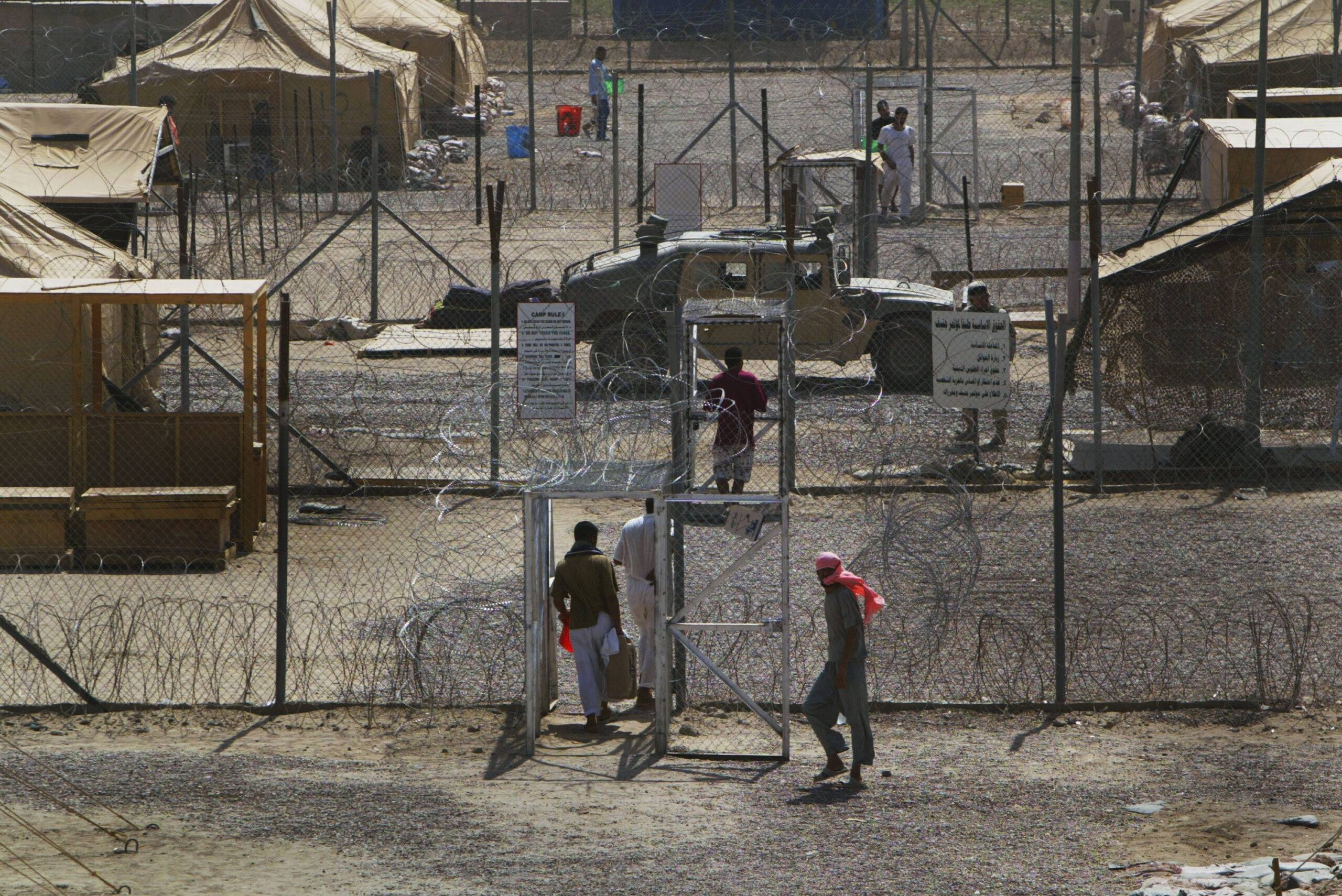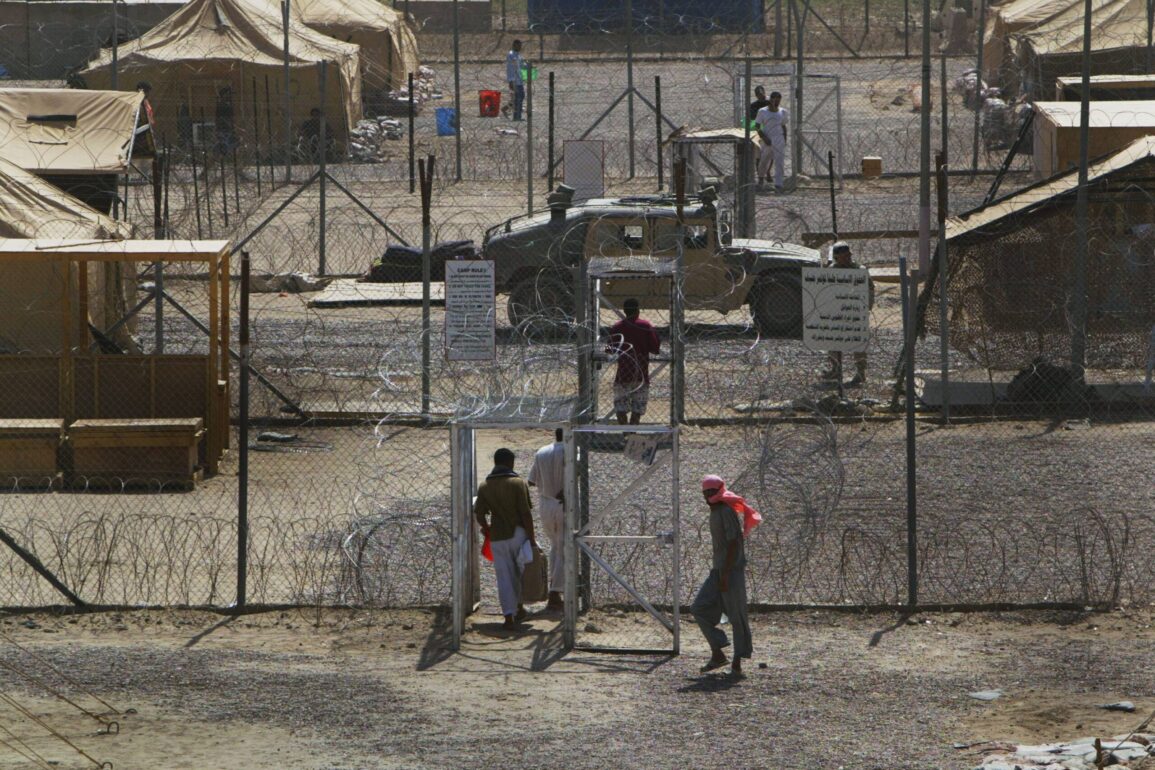
A historic trial began on Monday in the US State of Virginia, marking the first time that survivors of the early 2000s Abu Ghraib prison abuse scandal have brought their claims of torture to a US jury, now 20 years on, Anadolu Agency reports.
Three Iraqi detainees filed a lawsuit against military contractor, CACI, marking a significant step forward in justice two decades after the prison’s torture and abuse scandals during the Iraq War, according to CNN.
In a civil trial unfolding in Alexandria, northern Virginia, near Washington, DC, the plaintiffs confronted their alleged tormentors, seeking accountability for the atrocities endured in the notorious facility located in Abu Ghraib, Iraq, some 32 kilometres (20 miles) west of the capital, Baghdad
Salah Al-Ejaili, a former Iraqi journalist and one of the three plaintiffs, took the stand on Monday and recounted the “fear and terror” he endured during his 40 days of captivity in Abu Ghraib, saying: “I wished to die.”
READ: First trial over Abu Ghraib torture begins in US court, 20 years after revelations
Al-Ejaili, now living in Sweden after seeking asylum there, described the relentless torture tactics employed at the facility, run by the US military along with CACI, including beatings, sleep deprivation and forced nudity.
“We would hear the screams of the detainees,” he said.
His harrowing details, from the blinding lights to the agonising pain, painted a vivid picture of his ordeal at the hands of his captors, shedding light on the grim reality within Abu Ghraib.
‘Systemic abuse’
Al-Ejaili’s chilling account offers a glimpse into the deep trauma inflicted upon those held captive.
CACI, the defence contractor charged with overseeing interrogations at Abu Ghraib, denied any wrongdoing.
John O’Connor, the contractor’s lawyer, sought to deflect blame onto a few “bad apples” within the US military, absolving the company of responsibility.
“There’s no question that abuse happened,” O’Connor said, placing the blame on a few rogue military police officers who had already faced court-martial.
O’Connor also argued that the company acted within its mandate and provided crucial interrogator support during a time of wartime manpower shortage.
In contrast, the plaintiffs’ attorney, Baher Azmy, underscored CACI’s complicity in the systemic abuse, urging the jury to confront the enduring stain of Abu Ghraib.
He countered that CACI interrogators not only witnessed but actively participated in the abuse.
As the trial progresses over an expected two weeks, the courtroom drama is set to include video testimonies from other Iraqi plaintiffs and potentially even convicted US military personnel.
This pivotal case holds immense importance, not only for the victims seeking justice but also for global observers, according to human rights defenders.
The verdict will define the level of accountability for the US involvement in the Abu Ghraib scandal, emphasising the crucial need to prioritise human rights even in times of war.
OPINION: Remembering the revelations of US torture at Abu Ghraib
20 years of seeking truth and justice
Twenty years have passed since the media reported that US forces and the CIA tortured Iraqi detainees at Abu Ghraib and other US-run prisons, according to Sarah Sanbar, a researcher in the Middle East and North Africa division of Human Rights Watch investigating human rights abuses in Iraq.
Despite the lack of justice in the decades since, “several of these men told me they hold out hope that the US government will apologise and give them the redress they deserve,” said Sanbar.
A federal court in Virginia began to hear the case of Al Shimari et al. v. CACI on Monday, a lawsuit brought by the Centre for Constitutional Rights on behalf of three Iraqi torture victims.
Despite 20 attempts to dismiss the case since 2008, it moved forward, shedding light on the challenges faced by torture victims seeking redress.
Three Iraqi men alleged torture and abuse at the hands of US contractor CACI while detained at Abu Ghraib prison in Iraq.
The lawsuit claims CACI employees participated in the abuse, which came to light in 2004 and sparked international outrage.
The men are seeking compensation for the physical and emotional trauma they endured.
The US government has not created any official compensation program or avenues for redress.
“The US government should do the right thing: take responsibility for their abuses, offer an apology and open an avenue to redress that has been denied them for too many years,” Sanbar said.
READ: No compensation for Iraqi victims of US torture and abuse in Abu Ghraib prison
This post was originally published on this site be sure to check out more of their content.









